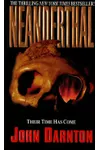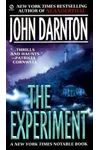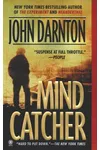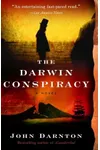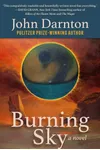Picture a globe-trotting journalist turned master storyteller, weaving tales of science, history, and suspense—meet John Darnton! Born in 1941, this Pulitzer Prize-winning New York Times veteran swapped newsrooms for novels, crafting thrilling narratives that pulse with intrigue and meticulous research. From covering wars to spinning conspiracies, Darnton’s life is as captivating as his books.
With a career spanning decades, Darnton’s work blends the grit of real-world reporting with the allure of fiction. His novels, like Neanderthal and The Darwin Conspiracy, hook readers with exotic settings and sinister plots. Ready to dive into his world? Let’s explore the man behind the mysteries!
The Making of John Darnton
Born on November 20, 1941, in New York City, John Darnton grew up in a family shadowed by loss—his father, a war correspondent, died in World War II when John was just eleven months old. Raised by his mother, a New York Times editor, Darnton inherited a love for storytelling. After graduating from the University of Wisconsin–Madison, he joined the Times in 1966 as a copyboy, kicking off a storied journalism career.
By the late 1960s, Darnton was reporting on everything from New York’s Black Panther trials to City Hall politics. In 1976, he went global, covering Africa from Lagos, Nigeria, until the military government expelled him. Undeterred, he reported from Nairobi, Kenya, and later Warsaw, Poland, where his smuggled dispatches on the Solidarity movement earned him a Pulitzer Prize in 1982.
John Darnton’s Unforgettable Stories
Darnton’s novels are where his journalism chops meet his knack for suspense. His debut, Neanderthal (1996), became an overnight bestseller, following a Harvard archeologist uncovering a lost race of telepathic Neanderthals in the Himalayas. It’s a wild ride blending science and adventure, showcasing Darnton’s flair for exotic locales.
The Experiment (1999) dives into cloning and life extension, delivering a medical thriller that’s as thought-provoking as it is chilling. Mind Catcher (2002) explores artificial intelligence and human consciousness, while The Darwin Conspiracy (2005) spins a historical tale around Charles Darwin’s voyages, packed with rivalries and secrets. His final novel, Black & White & Dead All Over (2008), is a witty media satire about murders in a newsroom, drawing on Darnton’s Times experience.
Known for “overcooked plots” tailor-made for Hollywood, Darnton’s direct, grounded style pulls readers into richly researched worlds. His thrillers mix scientific curiosity with historical depth, making complex ideas accessible and wildly entertaining.
Why John Darnton Matters
Darnton’s impact lies in his ability to bridge fact and fiction. His journalism—honored with two George Polk Awards and a Pulitzer—captured pivotal moments like Poland’s martial law. His novels, meanwhile, invite readers to question science, history, and human nature. By blending meticulous research with pulse-pounding narratives, he’s carved a niche in the thriller genre, inspiring writers to ground fiction in reality.
Retiring from the Times in 2005, Darnton became curator of the George Polk Awards and taught journalism at SUNY New Paltz. His 2011 memoir, Almost a Family, reflects on his father’s absence and his own journey, proving his storytelling prowess extends beyond fiction.
- Born: November 20, 1941, New York City
- Key Works: Neanderthal, The Darwin Conspiracy, Black & White & Dead All Over
- Awards: Pulitzer Prize (1982), two George Polk Awards
Snag Neanderthal or The Darwin Conspiracy and dive into John Darnton’s thrilling blend of science and suspense!
